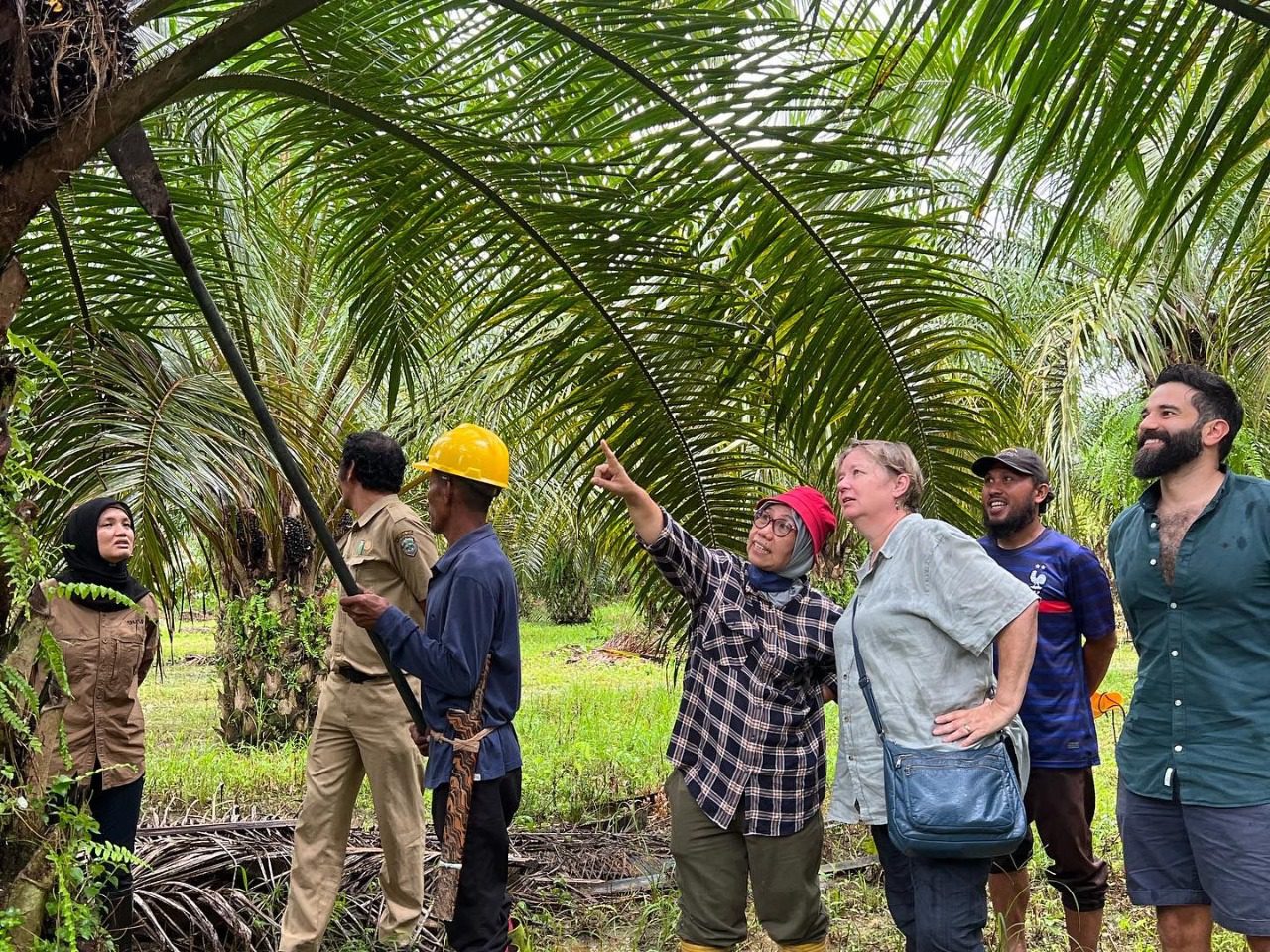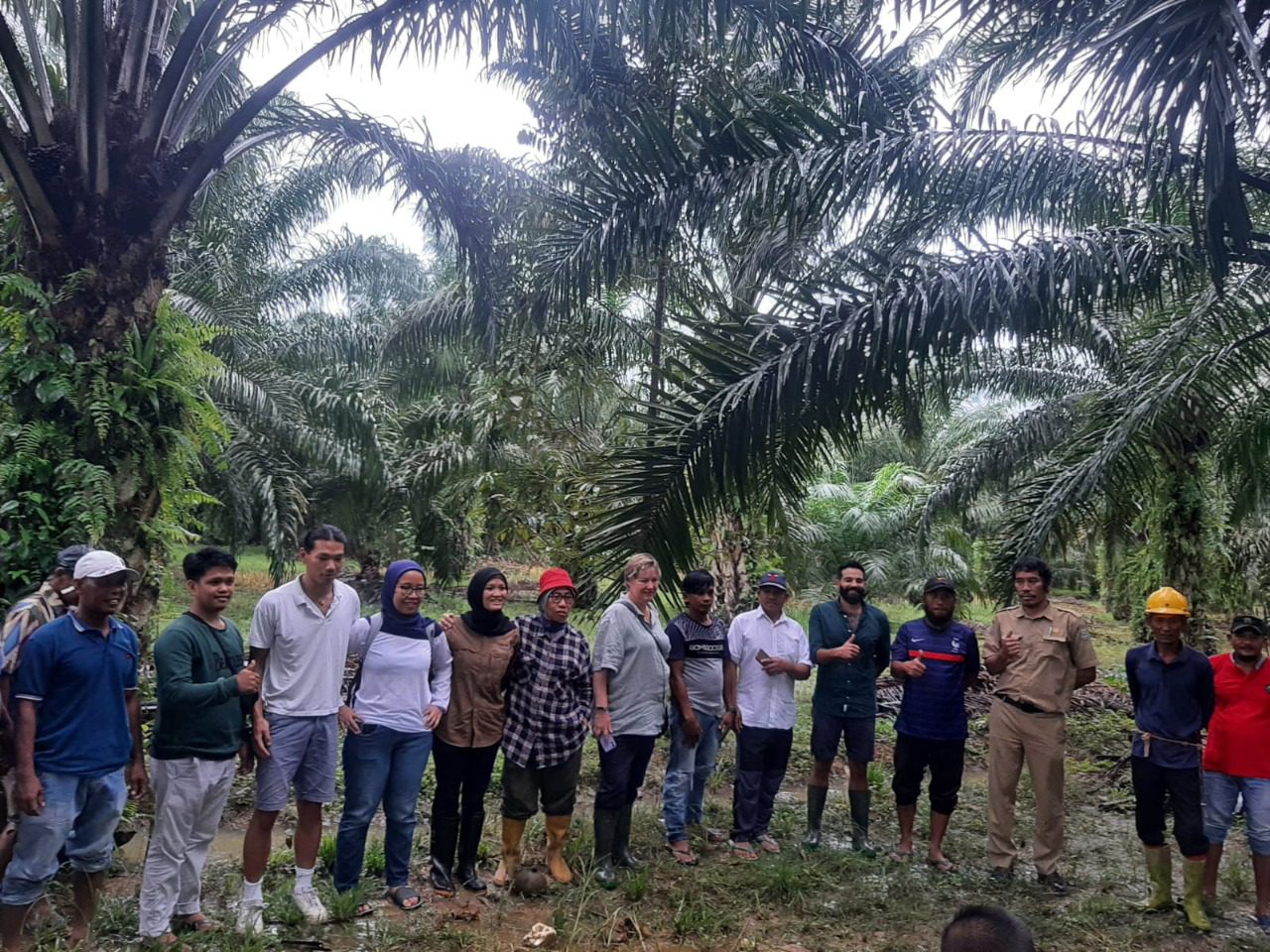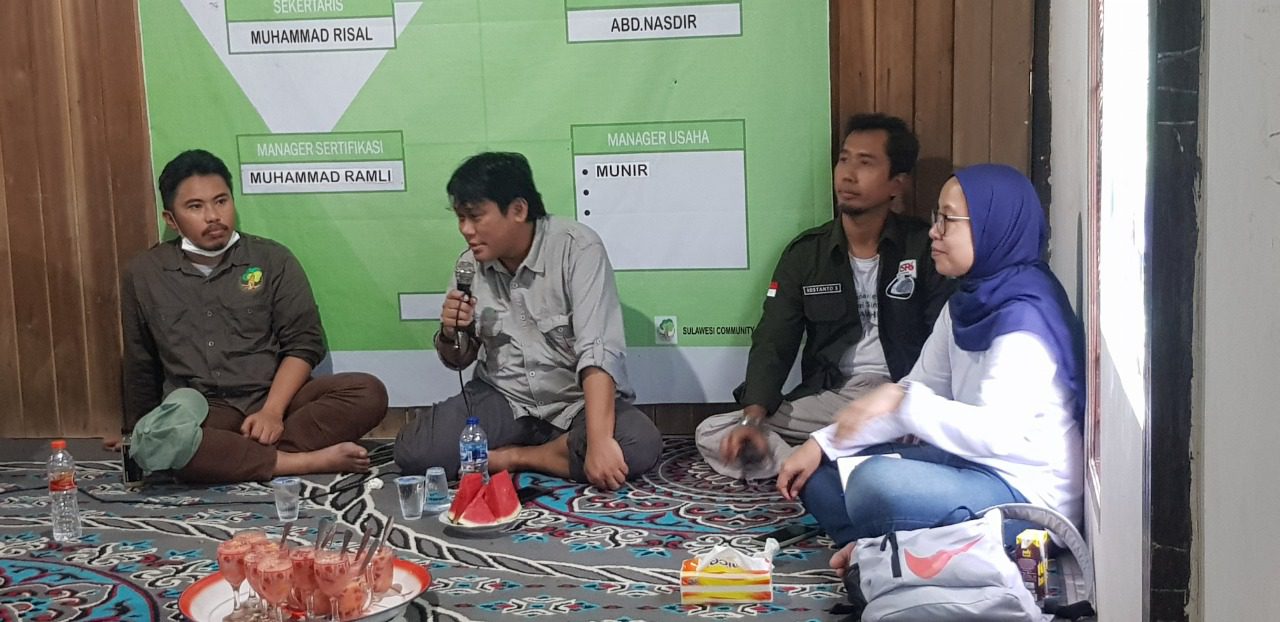Cooperative Efforts To Support Sustainable Palm Oil

-
Date:
06 Dec 2022 -
Author:
KEHATI
Malata, a multi-business cooperative in Lara Village, Karossa District, Central Mamuju Regency, West Sulawesi, is optimistic in its ability to prosper palm oil farmers. Malata, as the name suggests, is determined to make them unite and prosper together. Malata, short for Masagena Lalla Tassiara, means prosperous, independent, capable, and inseparable.
Asri, the head of the Malata Cooperative, gave a presentation on the cooperative’s philosophy to the Foreign, Commonwealth and Development Office (FCDO) group with KEHATI on Tuesday (15/11/2022).

Filosofi pemberdayaan petani sawit adalah untuk bisa mencapai tujuan bersama, makmur bersama, maka kita harus bersama-sama dan takkan pernah terpisahkan.
“The philosophy is being able to achieve common goals, prosper together. We must be together and never be separated,” Asri said.
The Malata Cooperative has done a lot to improve the lives of oil palm farmers in villages located about 150 kilometers from Mamuju, the capital city. From building businesses to arranging Roundtable on Sustainable Palm Oil (RSPO) and Indonesia Sustainable Oil Plan (ISPO) certification, efforts have also been made to increase the capacity of cooperative members.
“One of our primary activities is to build the capacity of independent smallholders. “They get training here on good, environmentally friendly agricultural practices,” Asri explained. Several businesses run by the Malata cooperative have begun to bear fruit, including the buying and selling of palm sticks and the business of weighing oil palm Fresh Fruit Bunches (FFB).
Income from the FFB weighing business reached IDR 9.5 million in the second month. Meanwhile, the business of buying and selling palm sticks has been running for the past 5 months and in one month can reach IDR 1.5-2 million divided among cooperative members according to their mutual agreement.
The cooperative employs a group of village women as stick craftsmen to buy and sell palm sticks. After doing their household chores, the women in the village spend their time picking up palm fronds and shaving them into sticks ready for sale on the market.
With Malata’s help, farmers were able to improve their knowledge too. Tamrin Welang, a palm oil farmer in Lara Village, said that since joining Malata he has acquired all the information necessary to manage environmentally friendly sustainable palm oil.
“Earlier, I had no idea how to take care of a palm tree to keep it productive and produce a lot of fruit”, he said.
Nine years after planting three hectares of oil palm, Tamrin is now able to make between IDR 10 and IDR 20 million each month.
“Thank God, I can send all five of my kids to school thanks to the income from this palm oil. Four of them have finished their education. One is still a high school student”, he said.
Palm Yield Optimization

Pembentukan Koperasi sebagai sarana pemberdayaan petani sawit
The cooperative was established as part of the KEHATI’s SPOS (Strengthening Palm Oil Sustainability) program, which aims to promote sustainable palm oil management in West Sulawesi Province. It is hoped that by maximizing palm oil yields from their own plantations, residents will no longer open up new land in forest areas for oil palm plantations.
The facilitation and support of the creation of a Regional Action Plan (known as RAD: Rencana Aksi Daerah) for sustainable palm oil, mapping and data collection of people’s palm oil, and the issuance of Cultivation Registration Certificates (known as STDB: Surat Tanda Daftar Budidaya) are among the programs and initiatives carried out in West Sulawesi, according to Program Director of SPOS Indonesia Irfan Bakhtiar. SPOS Indonesia also aims to improve farmer organization and capability, facilitate ISPO certification for farmer groups, support community companies based on palm oil or its derivatives, and assist in the development of Village Land Use Plans (known as RTGLD: Rencana Tata Guna Lahan Desa).
“Capacity building for farmers is accomplished through a variety of activities such as training, workshops, and comparative studies,” Irfan explained. The Pasangkayu and Central Mamuju districts are the focus of the SPOS Indonesia West Sulawesi program. KEHATI collaborates with the Sulawesi Community Foundation (SCF), which is funded by the Foreign, Commonwealth and Development Office (FCDO) of the United Kingdom. The program began in November 2019 and will conclude in December 2022.
Aside from Malata, another cooperative known as the Independent Palm Oil Farmers Association Cooperative (known as Koipes: Koperasi Ikatan Petani Sawit Swadaya) exists. Malata has 145 members and 207.3 hectares of oil palm land. Koipes, on the other hand, has 243 members and a land area of 435.32 Ha. Despite the fact that the cooperative is still dominated by men, more than 50 women have joined it. As many as 222 cooperative members have received training in Good Agriculture Practice (GAP) and Industrial Control System (ICS).
Various businesses specifically for women have also been built, such as the manufacture of palm sticks and weighing of Fresh Fruit Bunches (FFB) in Malata, as well as palm-based bath soap in Koipes.
Preparing for ISPO.
The Malata Cooperative and Koipes are currently preparing to become ISPO-RSPO certified. ISPO must be implemented in order to support the country’s palm oil sector’s expansion while also
minimizing the environmental issues that this industry causes. ISPO directly regulates many conditions for clearing and processing oil palm land in the country.
The RSPO (Roundtable on Sustainable Palm Oil) is the organization that certifies sustainable palm oil production. This agency oversees stakeholders in seven industries involved in the production, processing, and sale of palm oil.
“SPOS Indonesia has three major accomplishments: improving legality and legal compliance, increasing farmers’ sustainable plantation practices, and enhancing international market recognition of sustainable palm oil in Indonesia,” Irfan said.
In West Sulawesi, the Indonesian SPOS program covers 18 villages dispersed over the Dapurang District, Pasangkayu District (5 villages), Karrosa District (11 villages), Tommo District (two villages), and Central Mamuju District.
